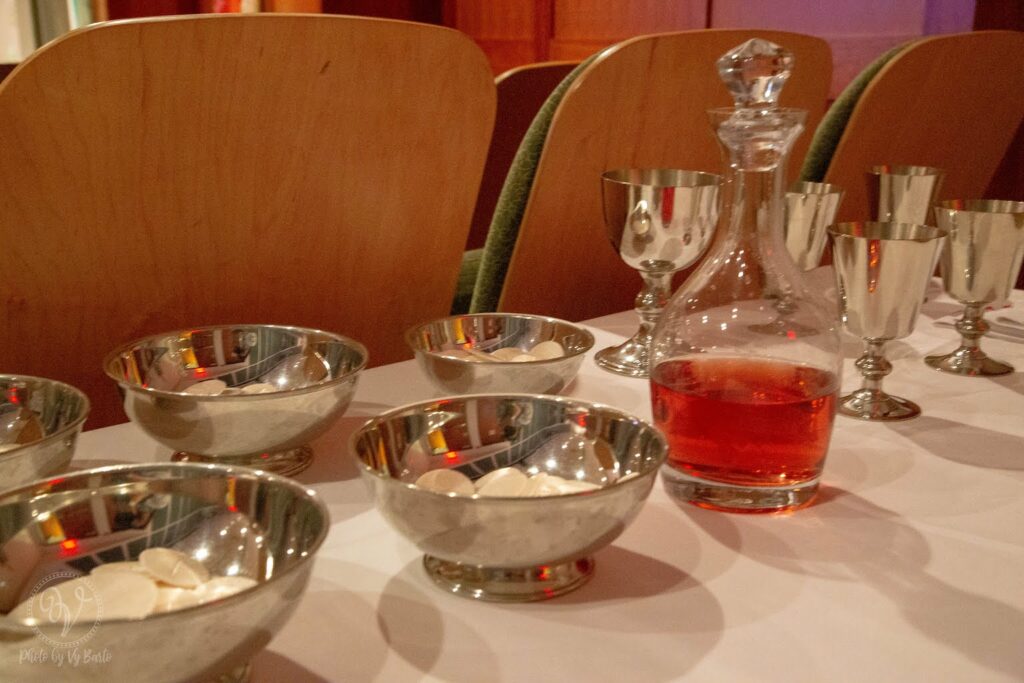Question:
Our new pastor is focused on making sure that everything at Sunday Mass is done strictly according to the rubrics. When it is time for Communion, he gives the host to each of the extraordinary ministers of holy Communion, who must stand back from the altar; then the deacon gives the cup to each one.
Then the pastor passes out the ciboria one by one, and he and the deacon hand out the cups one by one. No extraordinary minister is allowed to pick up anything from the altar, so there is a lot of walking back and forth. All this takes time; sometimes we are almost finished with the Communion hymn before anyone in the pews has received Communion. Is there some way to speed things up without violating the rubrics?
Also, if people come up to receive Communion without holding their hands the right way, the pastor stops and tells them what to do. That can be embarrassing; is there a better way to do that? (Richmond)
Answer:
Your pastor is following what is the prescribed procedure. The U.S. Conference of Catholic Bishops in its liturgy guide says: “After the priest has concluded his own Communion, he distributes Communion to the extraordinary ministers, assisted by the deacon, and then hands the sacred vessels to them for distribution of holy Communion to the people.”
In a further explanation, the guidelines for the Archdiocese of Washington state that “extraordinary ministers should not take the sacred vessels from the altar themselves, but should be handed them by the priest or deacon.”
All of this is to assure that the Eucharist is treated with the utmost reverence, and it doesn’t concern me that this “takes time.” Why not wait to start the Communion hymn until the people in the pews have begun to receive?
As for those who “grab” the host instead of receiving it in their open palm, I agree with you that there’s a better way to prevent that. Why not have the priest explain the proper manner from the pulpit occasionally, rather than single out any individual for attention?
Question:
At my previous parish, we said that the end of the Christmas season was the feast of the Epiphany. My current parish, though, says that the Christmas season concludes a week later on the feast of the Baptism of the Lord. Which one is right? If it’s the latter, what does the baptism of Jesus have to do with Christmas? (New Middletown, Indiana)
Answer:
Many people put away their Nativity creches and other Christmas decorations following the Epiphany, leading to a common assumption that the Christmas season closes with that feast. But liturgically, your current parish is correct.
The Christmas 2019 website of the U.S. Conference of Catholic Bishops said this: “The liturgical season of Christmas begins with the vigil Masses on Christmas Eve and concludes on the feast of the Baptism of the Lord. During this season, we celebrate the birth of Christ into our world and into our hearts, and reflect on the gift of salvation that is born with him … including the fact that he was born to die for us.”
The baptism of Jesus marks a sharp line of demarcation: Previous to that, he was viewed simply as a carpenter from Nazareth. But with his baptism, his public life begins as he proclaims with his words and actions the arrival of the reign of God; with the baptism in the Jordan, the Holy Spirit begins to lead Jesus in a new way.
The second part of your question is a bit more difficult: What does Christ’s baptism have to do with Christmas? Here, it’s helpful to consider something Pope Benedict XVI said in a homily on the feast of the baptism in 2013.
He explained that the nativity of Jesus and his baptism show the savior’s solidarity with us, the humble immersion in our human condition that allowed Christ to understand our weakness and frailty.
Even though Jesus had no need for baptism as a sign of repentance, he allowed it to happen. In the words of Pope Benedict, “He was moved to compassion, he chose to ‘suffer with’ men and women, to become a penitent with us.”
Question:
In one of your recent columns, you stated: “Strictly speaking, one is obliged to go to the sacrament of penance only for serious sins — although it is certainly a good idea to confess regularly even for lesser sins and imperfections.”
The Catechism of the Catholic Church says, however (No. 1457), that all Catholics should go to confession at least once a year. If this is actually a precept of the Church, my understanding is that all of the precepts must be obeyed under penalty of mortal sin. Can you explain your position on this and why it differs from the catechism — or was it just an oversight? (Indianapolis)
Answer:
My answer is consistent with Catholic teaching. The section to which you refer (No. 1457) in the catechism, referencing the Church’s Code of Canon Law, actually says this: “After having attained the age of discretion, each of the faithful is bound by an obligation faithfully to confess serious sins at least once a year.”
Again, though, I make a plea for much more frequent confession, even for venial sins. The introduction to the Church’s rite of penance states: “Frequent and careful celebration of this sacrament is also very useful as a remedy for venial sins. This is not a mere ritual repetition or psychological exercise, but a serious striving to perfect the grace of baptism so that … his (Christ’s) life may be seen in us ever more clearly.”

